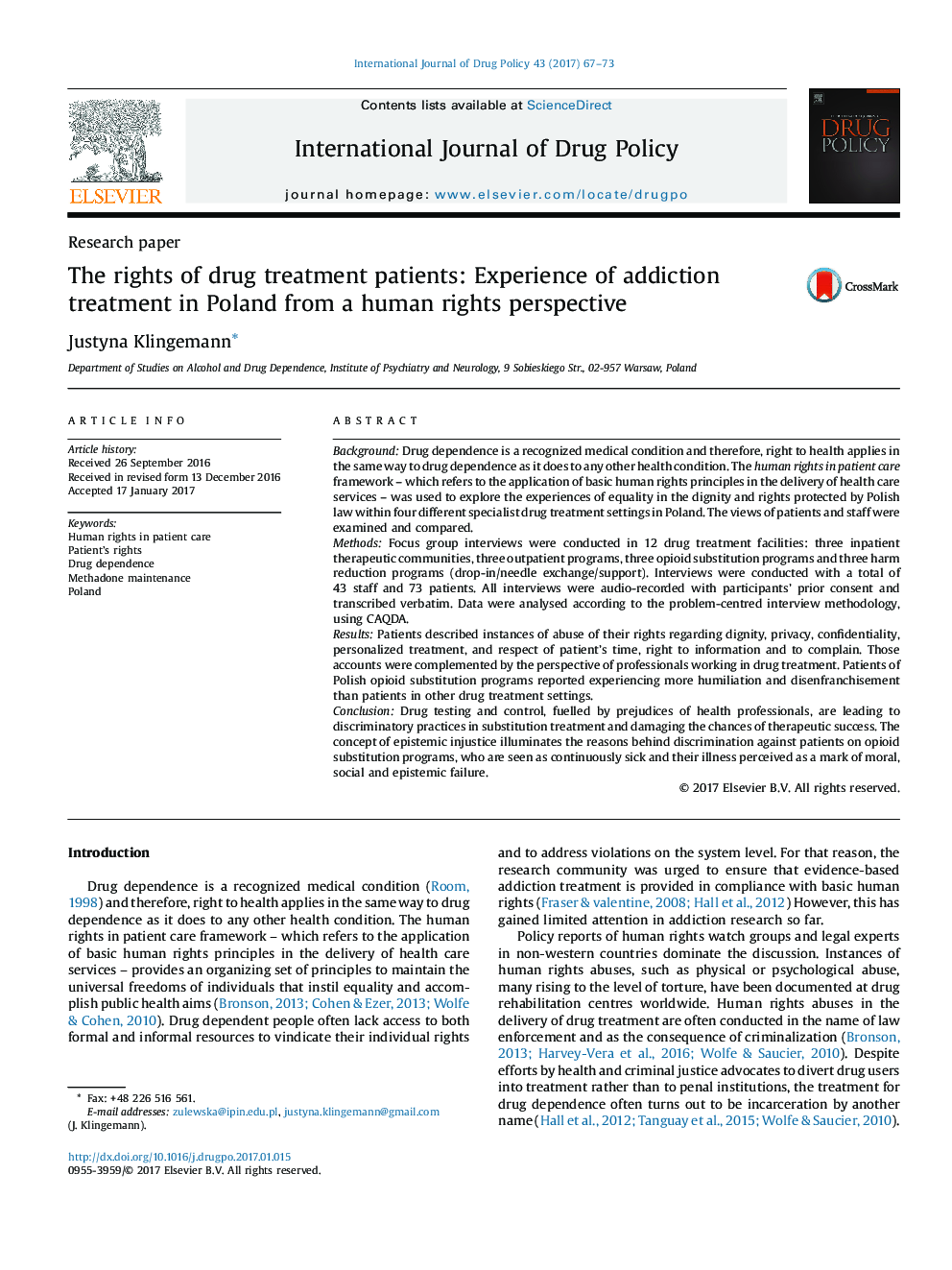| کد مقاله | کد نشریه | سال انتشار | مقاله انگلیسی | نسخه تمام متن |
|---|---|---|---|---|
| 5120891 | 1486262 | 2017 | 7 صفحه PDF | دانلود رایگان |
BackgroundDrug dependence is a recognized medical condition and therefore, right to health applies in the same way to drug dependence as it does to any other health condition. The human rights in patient care framework - which refers to the application of basic human rights principles in the delivery of health care services - was used to explore the experiences of equality in the dignity and rights protected by Polish law within four different specialist drug treatment settings in Poland. The views of patients and staff were examined and compared.MethodsFocus group interviews were conducted in 12 drug treatment facilities: three inpatient therapeutic communities, three outpatient programs, three opioid substitution programs and three harm reduction programs (drop-in/needle exchange/support). Interviews were conducted with a total of 43 staff and 73 patients. All interviews were audio-recorded with participants' prior consent and transcribed verbatim. Data were analysed according to the problem-centred interview methodology, using CAQDA.ResultsPatients described instances of abuse of their rights regarding dignity, privacy, confidentiality, personalized treatment, and respect of patient's time, right to information and to complain. Those accounts were complemented by the perspective of professionals working in drug treatment. Patients of Polish opioid substitution programs reported experiencing more humiliation and disenfranchisement than patients in other drug treatment settings.ConclusionDrug testing and control, fuelled by prejudices of health professionals, are leading to discriminatory practices in substitution treatment and damaging the chances of therapeutic success. The concept of epistemic injustice illuminates the reasons behind discrimination against patients on opioid substitution programs, who are seen as continuously sick and their illness perceived as a mark of moral, social and epistemic failure.
Journal: International Journal of Drug Policy - Volume 43, May 2017, Pages 67-73
